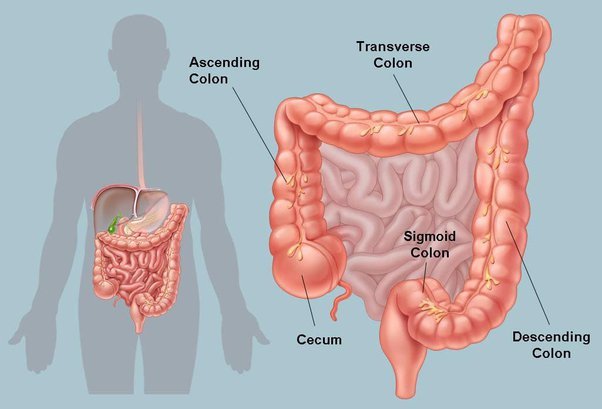Table of Contents
Today I will talk about Apple Cider Vinegar’s Mineral Absorption, Many people wonder if apple cider vinegar can help with mineral absorption. And the answer is: it can help! But it’s important to understand the full picture of how stomach acid, minerals, and even apple cider vinegar work together. In this article, we’ll explore the link between apple cider vinegar and mineral absorption, the role of hydrochloric acid in your stomach, and what you can do to optimize your nutrient uptake.
Apple Cider Vinegar and Mineral Absorption
I had some questions about stomach acid and mineral absorption if apple cider vinegar was the best thing to take if you want to improve mineral absorption so I wanted to create a topic just on this one topic and yes it can help you but I need to explain a couple little points about this
Hydrochloric acid

so normally in your stomach you have a very very acidic acid called hydrochloric acid the pH should be between one and three now think about it neutral is seven
so every number that goes below seven you go seven six five four three two one is 10 times as acid so if we compare six to seven six would be 10 times more acid five would be 10 times more acid than 6 so it compounds so when you get down to these lower numbers you have a very very acidic acid and this is normal
summary
- Stomach contains hydrochloric acid
- Normal stomach pH is between 1 and 3
- Each number below 7 is 10 times more acidic
- Very low pH indicates extremely acidic environment
The 3 things your stomach acid does
there’s three main things that your stomach acid is supposed to do number one it’s supposed to help you break down protein okay so if you don’t have the acid you can’t break down the protein it starts to putrefy you get undigested protein

number two it helps kill pathogens from invading the body so if you eat food with some microbes guess what that stomach is there to kill off the pathogens and if you can’t kill them off they can invade the body and you can create all sorts of infections in the colon it’s kind of part of the immune system
and number three and this is the topic that we’re discussing now it helps mineral absorption
summary
What happens if you don’t have enough stomach acid
so having the right amount of acid in your stomach can make minerals more bioavailable if you don’t have enough stomach acid then the absorption of calcium iron magnesium zinc copper cobalt and other minerals won’t be as efficient you also won’t have a hundred percent absorption of folic acid vitamin C vitamin D and vitamin A
so basically we need this strong acid or stomach to actually absorb these nutrients as we age we lose the strength of this acid and start having deficiencies of these nutrients
summary
- Reduced absorption of minerals (calcium, iron, magnesium, zinc, copper, cobalt)
- Decreased absorption of vitamins (folic acid, C, D, A)
- Aging leads to weaker stomach acid and nutrient deficiencies
Causes of low stomach acid
so aging is a very common cause of not having enough strong acid in your stomach other causes are antacids if you’re taking antacids or if you have hypothyroidism or if you have pernicious anemia

which is an autoimmune disease of certain cells in your stomach or if you have the infection Hpylori that can do it or if you had gastric bypass which is a surgery that can affect the pH of your stomach
summary
- Aging
- Antacids
- Hypothyroidism
- Pernicious anemia
- H. pylori infection
- Gastric bypass surgery
Stomach acid conditions
now there’s two conditions one is achlorhydria which is zero stomach acid you have no more stomach acid and then another condition hypochlorhydria which is a deficiency of that strong acid in your stomach
both of these conditions will affect the absorption of minerals and this can also create a problem with SIBO which is a condition where your microbes are growing in the small intestine instead the large intestine and this can affect your absorption of nutrients because these microbes are eating your nutrients and starving you of the nutrients
summary
- Achlorhydria: complete lack of stomach acid
- Hypochlorhydria: deficiency of stomach acid
- Both conditions affect mineral absorption
- Can lead to SIBO (Small Intestinal Bacterial Overgrowth)
Apple cider vinegar and mineral absorption
now the question is can apple cider vinegar fix low stomach acid and the answer is it can help absorption of food and has a lot of other benefits but it doesn’t necessarily fix hydrochloric acid itself
it will help the absorption even in the small intestine of nutrients and it actually can help to inhibit some of the microbes growing in the small intestine so it has a lot of benefits but to build up hydrochloric acid there’s several other nutrients that you’re going to need
summary
- Apple cider vinegar can help with food absorption
- It doesn’t directly fix hydrochloric acid deficiency
- Helps absorption in small intestine
- Can inhibit microbe growth in small intestine
How to build up hydrochloric acid

number one you’re gonna have to find the cause of it for example if it’s age well you can’t do anything about that right but if you’re taking any antacids you might want to find the cause of that get with your doctor
and see if you can actually reduce that because the more you’re on this it’s gonna be very difficult to correct this this hydrochloric acid is made from chlorides as in hydrochloric acid and sodium and potassium and zinc and iodine so you want to make sure that you have all of these in your diet
another good remedy to help build this up would be something called betaine hydrochloride okay so the chlorides can actually help build up hydrochloric acid but apple cider vinegar can help in digestion but it’s not the main thing to correct a low hydrochloric acid situation
so anyway I just wanted to give you a summary on answering this question
summary
- Find the root cause of low stomach acid
- Consult doctor about reducing antacids
- Ensure diet includes chlorides, sodium, potassium, zinc, and iodine
- Consider betaine hydrochloride as a remedy
- Apple cider vinegar helps digestion but doesn’t directly correct low hydrochloric acid
Summary
Normally, in your stomach, you have a very acidic acid called hydrochloric acid. The pH of your stomach should be between 1-3. There are three main things your stomach acid is supposed to do.
- It helps you break down protein
- It helps kill pathogens
- It helps with mineral absorption
Having the right amount of acid in your stomach can make minerals more bioavailable. If you don’t have enough stomach acid, then the absorption of certain minerals won’t be as efficient. We need this strong acid in the stomach to help absorb nutrients.
These minerals can include:
• Calcium
• Iron
• Magnesium
• Zinc
• Copper
• Cobalt
You also may not have 100% absorption of:
• Folic acid
• Vitamin C
• Vitamin D
• Vitamin A
Causes of low stomach acid:
• Age
• Antacids
• Hypothyroidism
• Anemia
• H-pylori
• Gastric bypass
- Achlorhydria: Where you have zero stomach acid.
- Hypochlorhydria: Where you have low stomach acid.
- Both of the above conditions can affect the absorption of minerals. They can also cause an issue called SIBO, which can affect your absorption of nutrients.
Can apple cider vinegar (ACV) help fix low stomach acid?
Apple cider vinegar can help with the absorption of food. There are also a lot of other apple cider benefits, and apple cider uses. But, fixing hydrochloric acid itself is not necessarily one of the effects of apple cider vinegar. It can help with mineral absorption, and it may even help inhibit microbes from growing in the small intestine.
But to actually build up hydrochloric acid there are other nutrients you need, such as:
• Chloride
• Sodium
• Potassium
• Zinc
• Iodine
Another great natural remedy to help build up apple cider vinegar is called betaine hydrochloride.
FAQ
Does apple cider vinegar help with nutrient absorption?
Apple cider vinegar (ACV) may influence nutrient absorption, particularly in relation to minerals such as calcium and iron. Some studies indicate that the acetic acid in ACV can enhance the absorption of certain nutrients by increasing the acidity of the stomach, which can help break down food more effectively. However, the evidence is mixed, and further research is needed to fully understand its impact on nutrient absorption across different populations and dietary contexts.
Does apple cider vinegar affect absorption?
Yes, apple cider vinegar can affect nutrient absorption. The acetic acid present in ACV may improve the absorption of some nutrients by enhancing gastric acidity and promoting better digestion. For instance, it has been suggested that ACV may help increase the bioavailability of minerals, but its overall effect on nutrient absorption can vary based on individual health conditions and dietary habits.
Does apple cider vinegar prevent calcium absorption?
There is limited evidence to suggest that apple cider vinegar directly prevents calcium absorption. While some acidic substances can interfere with calcium absorption, ACV might not have a significant negative impact. In fact, its potential to enhance digestion could, in some cases, support better absorption of calcium. However, individuals with specific health concerns, such as osteoporosis, should consult with a healthcare provider regarding their use of ACV.
Does apple cider vinegar affect iron absorption?
Apple cider vinegar may impact iron absorption, particularly non-heme iron found in plant foods. The acetic acid in ACV can potentially enhance the solubility of iron, making it easier for the body to absorb. However, excessive consumption of ACV could lead to lower potassium levels, which may indirectly affect overall nutrient absorption. Therefore, moderation is key.
7 reasons you need to drink apple cider vinegar every night before bed
- Supports digestion: Drinking ACV before bed may aid in digestion, reducing bloating and discomfort.
- Regulates blood sugar: ACV can help stabilize blood sugar levels overnight, which may be beneficial for those with insulin sensitivity.
- Promotes weight loss: Consuming ACV may enhance feelings of fullness, potentially leading to reduced calorie intake.
- Improves heart health: Regular consumption of ACV has been linked to lower cholesterol levels and improved heart health.
- Boosts skin health: The antimicrobial properties of ACV may help improve skin conditions when consumed regularly.
- Enhances detoxification: ACV is believed to support liver function and detoxification processes in the body.
- Supports overall wellness: The antioxidants in ACV can contribute to overall health and well-being.
Apple cider vinegar side effects on kidneys
While apple cider vinegar is generally safe for most people, excessive consumption can lead to potential side effects on kidney health. High acidity levels may strain the kidneys, especially in individuals with pre-existing kidney conditions. It is advisable for those with kidney issues to limit their intake of ACV and consult with a healthcare professional before incorporating it into their diet.
Who should not take apple cider vinegar?
Certain individuals should avoid or limit their intake of apple cider vinegar, including:
- People with diabetes: Those on insulin or other blood sugar-lowering medications should be cautious, as ACV can enhance the effects of these drugs and lead to hypoglycemia.
- Individuals with kidney disease: High acidity may exacerbate kidney problems.
- People with low potassium levels: ACV can further reduce potassium levels, which could be dangerous.
- Those with gastrointestinal issues: Individuals with acid reflux, ulcers, or other digestive disorders may find that ACV exacerbates their symptoms.
20 benefits of apple cider vinegar
- Aids in weight loss
- Regulates blood sugar levels
- Lowers cholesterol
- Improves heart health
- Enhances digestion
- Reduces bloating
- Supports skin health
- Acts as a natural antimicrobial
- Promotes detoxification
- Boosts energy levels
- Improves gut health
- Helps with sore throat relief
- May reduce the risk of heart disease
- Supports healthy hair
- Enhances nutrient absorption
- May alleviate allergies
- Improves oral health
- Acts as a natural preservative
- May reduce the risk of cancer (preliminary evidence)
- Supports overall wellness
Apple cider vinegar benefits
Apple cider vinegar offers a variety of potential health benefits, including:
- Blood sugar control: It can help lower blood sugar levels after meals.
- Weight management: ACV may promote feelings of fullness and reduce calorie intake.
- Digestive health: It aids in digestion and may alleviate symptoms of indigestion.
- Heart health: Regular consumption may improve cholesterol levels and support cardiovascular health.
What medications does apple cider vinegar interfere with?
Apple cider vinegar can interact with several medications, including:
- Insulin and other diabetes medications: May enhance the effects, leading to low blood sugar levels.
- Diuretics: Can further lower potassium levels, increasing the risk of hypokalemia.
- Heart medications: Such as digoxin, where low potassium levels could increase side effects.
Apple cider vinegar side effects liver
While apple cider vinegar is generally safe in moderate amounts, excessive intake may pose risks to liver health. High acidity can stress the liver, particularly in individuals with pre-existing liver conditions. It is important to consume ACV in moderation and consult with a healthcare provider if there are concerns about liver health.
What are the benefits and side effects of apple cider vinegar tablets?
Benefits:
- Convenience: Tablets provide an easy way to consume ACV without the strong taste.
- Potential health effects: Similar to liquid ACV, they may help regulate blood sugar, support weight loss, and improve digestion.
Side effects:
- Digestive issues: Some individuals may experience nausea or digestive discomfort.
- Lack of regulation: The quality and efficacy of ACV tablets can vary, as dietary supplements are not strictly regulated.
- Potential interactions: Similar to liquid ACV, they may interact with medications, particularly those affecting blood sugar and potassium levels.




